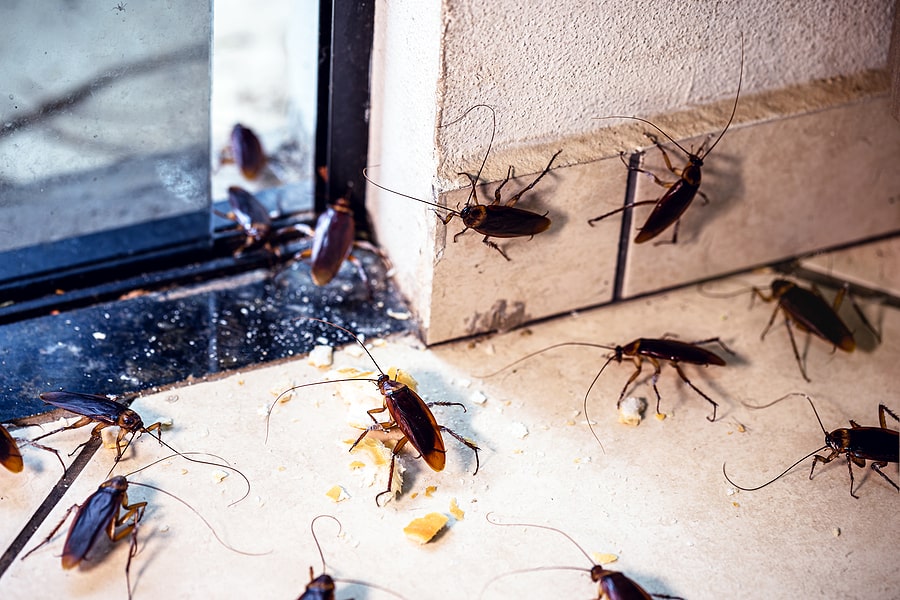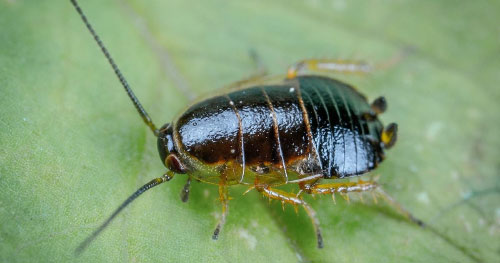Checking Out Various Insect Control Techniques to Accomplish Long-Term Success in Managing and Preventing Infestations in House
Effective insect control in domestic areas necessitates a diverse strategy that stabilizes instant outcomes with long-term sustainability. What might these improvements require, and how can they change our understanding of pest control?
Comprehending Bug Control Approaches
Although insects have actually existed along with humans for centuries, the methods employed to manage them have actually advanced considerably with time. Recognizing these methods is critical for effectively managing and protecting against invasions in houses. Pest control techniques can be generally categorized right into 3 key strategies: cultural, mechanical, and chemical.
Cultural methods concentrate on modifying the atmosphere to lower bug tourist attraction and breeding. This includes proper sanitation, crop rotation, and habitat adjustment, which can dramatically lower pest populations. Mechanical control involves physical obstacles and catches to handle pests straight, such as screens, vacuums, and sticky traps. This technique is often favored for its safe nature and prompt results.
Chemical control continues to be one of the most widely made use of methods, entailing the application of pesticides to eliminate insects. Integrated Parasite Monitoring (IPM) integrates these techniques to develop an all natural approach, promoting long-lasting bug avoidance and marginal damage to beneficial organisms.
Eco-Friendly Insect Control Solutions
Exactly how can home owners properly take care of parasite troubles while reducing their ecological impact? Environment-friendly bug control options use a sustainable option to standard techniques, prioritizing the health and wellness of both residents and the bordering ecological community. These remedies usually make use of natural components and methods that disrupt parasite habits without presenting hazardous chemicals right into the environment.
One effective approach is making use of valuable bugs, such as ladybugs and lacewings, which exploit typical insects like aphids and termites. Furthermore, diatomaceous earth, an all-natural powder made from fossilized algae, can be sprayed in areas where parasites are prevalent, serving as a desiccant that harms bugs while remaining secure for human beings and pets.
Furthermore, implementing safety nets is critical. roach control near me. House owners can guarantee correct hygiene by securing access points, preserving tidy space, and managing waste properly. Planting pest-repellent natural herbs, such as mint and basil, can also hinder unwanted site visitors
Ultimately, environmentally friendly insect control remedies empower home owners to deal with infestations sensibly, fostering a much safer living setting while promoting ecological equilibrium. By embracing these techniques, people can add to a healthier world while effectively managing pest-related problems.
Chemical Pest Control Options
While green services are progressively preferred, there are scenarios where chemical parasite control alternatives might be necessary for efficient monitoring of severe invasions. Chemical controls, including insecticides, fungicides, and herbicides, are usually made use of to quickly minimize bug populaces and minimize great post to read damage to homes and yards.
These items can be categorized into 2 major groups: artificial chemicals and natural pesticides. Artificial chemicals, such as pyrethroids and neonicotinoids, are engineered to target particular pests, giving quick knockdown effects. Conversely, all-natural pesticides, derived from plant or mineral sources, may supply a much more eco pleasant choice while still supplying efficient outcomes.
Before using chemical parasite control, it is important to carry out a thorough analysis of the infestation and identify the particular bug entailed. This guarantees that the picked chemical is both efficient and ideal. Additionally, house owners have to adhere to safety and security standards, including correct application techniques and personal safety tools, to lessen wellness risks and environmental impact.
Integrated Parasite Monitoring Techniques

Biological control involves the usage of all-natural predators or bloodsuckers to handle parasite populaces. For example, presenting ladybugs can assist control aphid invasions. Cultural techniques, such as plant rotation, hygiene, and habitat alteration, aim to make environments much less for pest survival and recreation. Physical controls, like traps or barriers, can stop pests from getting in homes or damaging plants.
Monitoring and analysis are important parts of IPM, enabling for prompt interventions based on pest populace Full Article limits. By prioritizing preventative steps and using a mix of strategies, IPM not just addresses existing infestations however additionally cultivates long-lasting bug monitoring solutions that safeguard both human health and wellness and the environment. This detailed method is necessary for lasting bug control in houses.
Emerging Technologies in Parasite Control
The development of arising modern technologies in parasite control is revolutionizing the way we handle pest populaces, using ingenious remedies that enhance effectiveness and efficiency. Developments in precision agriculture, as an example, utilize information analytics and sensing unit modern technologies to check bug task and ecological conditions, enabling targeted treatments that lessen chemical use.
Additionally, drones geared up with imaging technology are being utilized to evaluate huge areas for problems, supplying useful content real-time data that aids in timely decision-making. Furthermore, biotechnology is playing a pivotal function, with the development of genetically modified microorganisms (GMOs) developed to reduce bug populaces while preserving useful species.

Finally, wise traps and keeping track of gadgets geared up with IoT abilities enable property owners and pest control professionals to receive instant alerts regarding pest activity, helping with prompt activity. Jointly, these arising innovations not only improve parasite administration results however also add to ecological sustainability by decreasing reliance on traditional chemical therapies.

Verdict
Finally, reliable bug control requires a complex approach that includes cultural, mechanical, and chemical techniques. Emphasizing eco-friendly remedies and Integrated Pest Administration can cause lasting practices that not just minimize problems but also improve the environmental equilibrium within suburbs. By embracing innovative modern technologies and adopting safety nets, home owners can cultivate healthier environments while minimizing reliance on unsafe chemicals. The assimilation of these methods is crucial for achieving long-term success in insect monitoring.